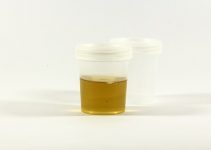Midwives have traditionally recommended various natural remedies to induce labor. Unlike doctors, they did not have access to hormones or drugs used these days to induce labor.
Most doctors would use oxytocin to induce labor, but it is not something that can be used at home or without serious medical indications. Moreover, these hormones have numerous side effects.
Natural remedies to induce labor have their own special place. They are preferred when a woman is overdue, but there are no serious medical reasons for harsher measures, like labor induction under medical supervision.
Natural remedies are more like supportive measures. Thus they can help induce labor and strengthen the contractile force of the uterine.
When should one consider labor induction?
There could be several reasons when a woman may consider to stimulate uterine, induce labor naturally. Perhaps the most common cause could be post-term pregnancy.
A situation when the due date is close or has even passed, and labor has still not started. Since natural remedies are relatively mild, they are undeniably safe for such situations.
Women may also consider using natural remedies under some exceptional circumstances. Diabetes or gestational diabetes could be a cause of concern. Those living with diabetes may expect issues with labor, and using natural remedies may help.
Diabetes is a chronic metabolic disease that weakens the nervous system, including the autonomic nervous system, which is responsible for starting uterine contractions at the due time.
Women living with high blood pressure may also consider inducing labor, particularly those who had severe upsurges in blood pressure during pregnancy. In such cases, it is quite probable that uterine contractions may start late or maybe weak.
Obesity is yet another reason to look for natural remedies. Obese ladies often have a sluggish uterine, and labor may not start when and as expected. Women who are physically not very active may also face these issues.
Why cumin, and is it safe?
Firstly, all about its safety. It is necessary to understand that cumin is a widely used spice, appreciated for its strong peppery taste. It is safe for consumption during pregnancy.
In many parts of the world, women continue to consume it during pregnancy, adding cumin to various dishes, and even bread.
Cumin is thought to be native to the middle east. Nowadays, it is more commonly cultivated in India, China, other parts of Asia, and North America. There is evidence that ancient Egyptians used it. It is also mentioned in the Bible [1].
Traditionally, people used it to relieve stomach gases, improve digestion, and as an antimicrobial. It is also useful for the liver, kidneys. It may help ease nausea.
Modern studies show that it is rich in antioxidants. It is abundant in many beneficial phytochemicals and is added to various natural remedies or supplements [1].
Cumin tea to induce labor
It is vital to understand that it is a mild remedy. It means that it may help only slightly to induce labor, or in some cases, may not help as expected. Since it is a mild remedy, it is safe to use.
There are no known cases of any complications with cumin tea. However, cumin tea is not very pleasant in taste. Thus some recommend adding a chunk of potato to overcome its bitter taste.
For optimal benefit, one may drink a few cups of it a day. But do not consume more than four cups, as it may cause gastric irritation in some.
Can one expect Cumin tea to work?
The primary reason for using cumin tea is that it is not harsh. Thus it may or may not help. It is for pregnant ladies looking to induce labor but does not have any serious medical indication.
It is more like a supportive measure for inducing labor. Studies show that it is not rare for women to use natural remedies to induce labor since most women consider them safer than medical drugs.
Traditional experience shows that cumin is among one of the herbal remedies used to induce labor [2].
Although cumin tea is not tested in clinical trials, some researchers have tested its ability to stimulate uterine contraction and induce labor. Science seems to support such use. Studies confirm its ability to stimulate uterine.
In one of the experimental studies in India, researchers used extracts from various spices to see if they can increase the contractile force of uterine tissue.
And the study found that cumin has a mild uterine tissue contraction stimulating action. It could increase contraction force but was much weaker than oxytocin [1].
To conclude, cumin tea may help induce labor, but it is not very strong in doing so. But, then the whole purpose of using natural remedies is just to support the body. People do not expect such treatments to be harsh.
And cumin tea is such a remedy, a safe way to stimulate uterine to ensure timely labor, which helps slightly—just a perfect home remedy for those seeking that little support for a body.
Finally, a word of caution, do not use cumin tea if there are some serious medical reasons for labor induction. Since more severe indications may need more potent drugs or even hormones.
Thus, cumin tea may not be an ideal remedy for those with rupture of membranes, infection of the uterus, placental abruption, and so on. For such severe issues, one should seek immediate medical help.
References
- Ramadan MF. Nutritional value, functional properties, and nutraceutical applications of black cumin (Nigella sativa L.): an overview. International Journal of Food Science & Technology. 2007;42(10):1208-1218. doi:10.1111/j.1365-2621.2006.01417.x
- Al-Ramahi R, Jaradat N, Adawi D. Use of herbal medicines during pregnancy in a group of Palestinian women. Journal of Ethnopharmacology. 2013;150(1):79-84. doi:10.1016/j.jep.2013.07.041
- Chumber A, Degolier T. The influence of common cuisine spices such as ajwain, cumin, dill, fenugreek, and papaya on the contractile behaviors of isolated strips of mouse uterine tissue. :6.




 Dr. Preet Pal SB is a physician (M.D. Medicine) with a specialization in diabetes (Fellowship in diabetes, Royal Liverpool Academy). He has a particular interest in metabolic disorders, considering that they are rising in every corner of the world, more so in India.
Dr. Preet Pal SB is a physician (M.D. Medicine) with a specialization in diabetes (Fellowship in diabetes, Royal Liverpool Academy). He has a particular interest in metabolic disorders, considering that they are rising in every corner of the world, more so in India.